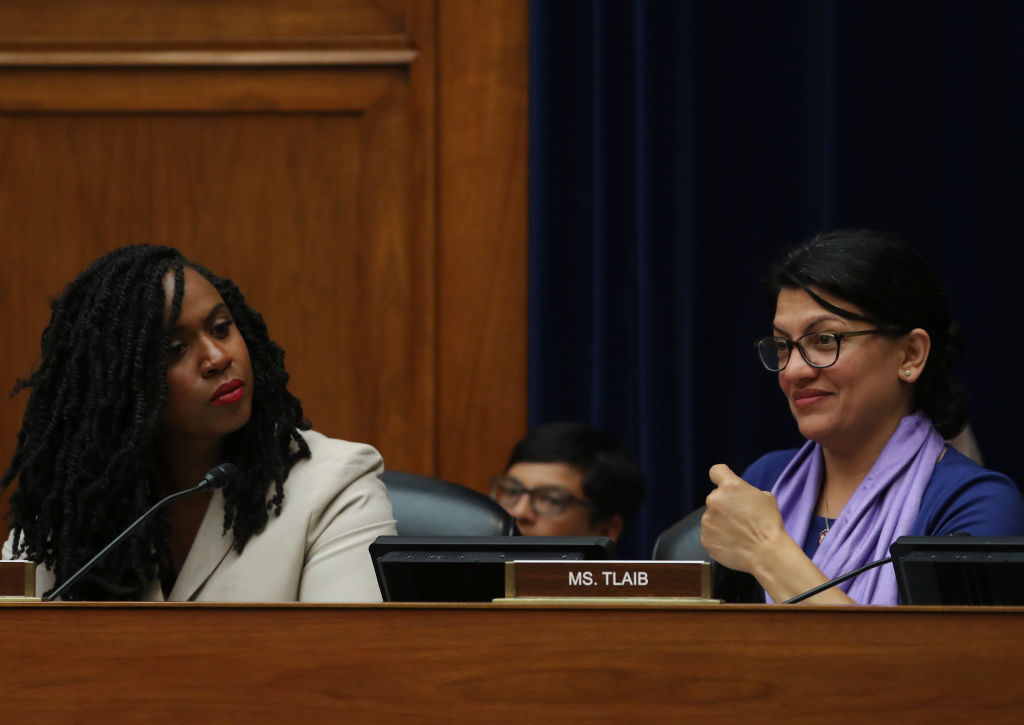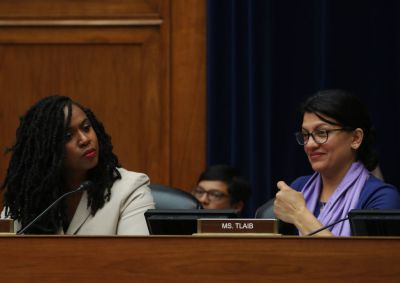Daily Beast columnist Matt Lewis stumbled upon a Facebook post a few years ago. Millionaires, it claimed, make up 1 percent of the U.S. population, but a staggering 50 percent of U.S. congressional representatives. Facebook being Facebook, the 1 percent figure was incorrect—it’s closer to 6 to 8 percent—but more than half of America’s congressmen are in fact millionaires. This raised a two-part question: Why do the rich get elected, and why do the elected get rich?
Lewis (who I have known for some time and consider a mentor) offers answers in his new book, Filthy Rich Politicians: The Swamp Creatures, Latte Liberals, and Ruling-Class Elites Cashing in on America. But he has more fundamental concerns in mind. The book shows how money, and the opportunity to get more of it, erodes trust between elected officials and those they’re meant to serve.
Lewis doesn’t think the wealth of elected officials is itself unreasonable or unexplainable. Success in the private sector often translates into trust in one’s ability to craft public policy, and those with means are well-equipped to take the financial risk of running for office. In his characteristically witty prose, Lewis stresses that he harbors no animosity toward the wealthy. (“I’m not a Communist. I’m a golfer,” he writes, cleverly aping Russell Kirk.)
Of course, the gap between representative and constituent wealth can set off waves of populist furor. “The richest among us,” Lewis grants, “should want to mitigate the chances of a mob showing up at their front door with pitchforks and flaming torches.” But that also isn’t the big problem.
“The big problem—the one that really undermines trust in representative democracy,” Lewis writes, is that, “People who manage to get elected (regardless of their wealth)—almost always get richer.” There’s a key difference between his account and the Vulgar Marxist assessment that looks solely at tax loopholes or friendly regulation. It’s not through legislative system-rigging that many in Congress line their pockets, but through exploiting perks available only to those in their positions.
There’s “honest graft”—honest insofar as it is not technically illegal—that Lewis details extensively. Paul Pelosi, Rep. Nancy Pelosi’s husband, had uncanny “luck” picking stocks, investing in Tesla just before President Biden signed a zero-emission vehicle executive order, and in Microsoft days before the tech giant closed an augmented reality headset contract with the U.S. Army. Former Sen. Harry Reid and Speaker Dennis Hastert carried out shady land deals. Rep. Madison Cawthorn was embroiled in a cryptocurrency pump-and-dump scheme while in the House.
But it isn’t just “honest graft” that most forcefully exacerbates the polarization and partisanship raging through our politics. It’s a corresponding hypocrisy.
Lewis traces how at the outset of COVID-19, tenant unions organizing rent strikes found allies in progressive Reps. Ayanna Pressley and Rashida Tlaib. The duo backed a bill canceling rent and mortgage payments—with a provision to reimburse landlords who lost income as a result of the freeze. The bill failed, but was reintroduced a year later. What the Squad members were not particularly transparent about, however, was their own stake in the provision: Tlaib and Pressley each took rental income during the early pandemic years, reporting as much as $50,000 and $117,500 respectively.
Pressley and Tlaib are emblematic of politicians railing against a particular problem while potentially accruing personal benefits from their solution of choice. It’s actions like these—which often grow lawmakers’ public profiles and bank accounts—that stoke outrage.
Over the past eight years or so, a wave of writing has chronicled declining trust in America’s governing institutions. The dishonesty of irresponsible elites both confirms Americans’ legitimate fears and encourages exaggerated rancor. Lewis himself contributed to that body of work with his 2016 book Too Dumb to Fail, which traced the Republican Party’s path from “the party of Reagan to the party of Trump.” Back then, he stressed that at some point party leaders became more concerned with cable-news stardom than intellectual substance.
Filthy Rich Politicians continues the conversation with a slightly different approach, focusing not on fame but on money. Yet the cycle is the same. The suspicions elected officials raise when shirking from their responsibilities to the American people are in large part deserved. But a society in which only few citizens trust those in power is one that can easily succumb to paranoid and even conspiratorial thinking.
If our leaders are more concerned with advancing their own public profile or increasing their net worth than advocating for the people who voted them into office, it isn’t that much of a stretch to think they’d be up to some chicanery when tallying election results, for instance—especially when those suspicions are encouraged by yet another politician who is far more interested in his own brand than the health of the country. Though these conspiracy theories themselves are in no way legitimate, America’s political class would be smart to dismantle the permission structure for distrust it has built.
Lewis offers some prescriptions near the end of Filthy Rich Politicians. He proposes a ban on stock trading by members of Congress and their families, preventing politicians from hiring family members to work on their campaigns, instituting a 10-year restriction on lobbying for former officeholders, among other ideas. Some of what Lewis posits would seem to work, and in what may be the first instance of populism motivating responsible politics, Sens. Kirsten Gillibrand and Josh Hawley introduced a bill—the day after the book’s release, coincidentally— prohibiting members of Congress, executive branch officials, and their families from trading stocks.
But the money problem is just one of many to solve. There may be some support for certain reforms right now, but the overall track record still skews unfavorably toward representatives preening for TV cameras and taking advantage of the norms Lewis describes. If America’s lawmakers want their voters to believe in them, they need to act like it. As long as politicians remain addicted to the perks of their offices, we’ll remain in our current state of disrepair.






Please note that we at The Dispatch hold ourselves, our work, and our commenters to a higher standard than other places on the internet. We welcome comments that foster genuine debate or discussion—including comments critical of us or our work—but responses that include ad hominem attacks on fellow Dispatch members or are intended to stoke fear and anger may be moderated.
With your membership, you only have the ability to comment on The Morning Dispatch articles. Consider upgrading to join the conversation everywhere.